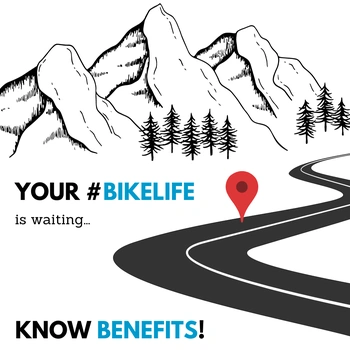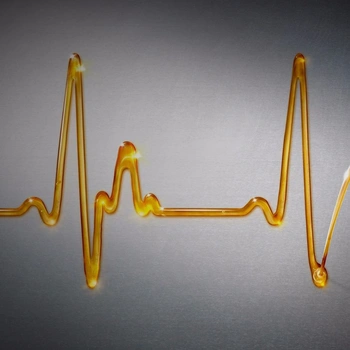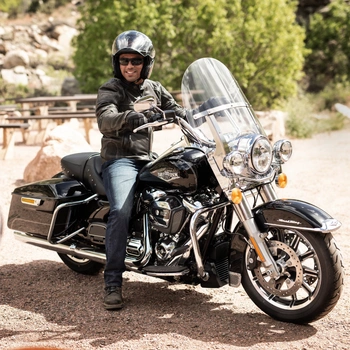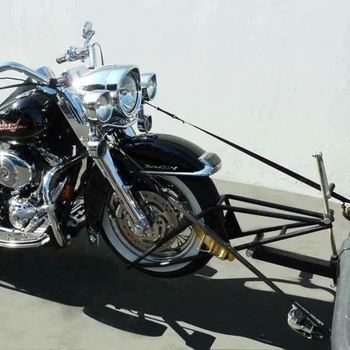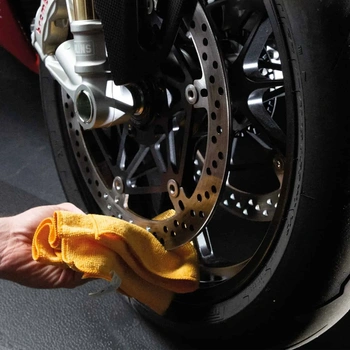
Please do not start with Gasoline, kerosene and diesel, as they are all fuel oils derived from petroleum. Even if they have solvent properties, they can leave oily residue behind.
Table Of Content:
Now first of all, why are you "cleaning" your brake discs? Are they just dirty or worse, oily?
If you are talking about rust that needs to be cleaned off your discs, get out and use them. Rust on brake discs just shows that the discs have a high cast-iron level as one of the many materials that make up your discs. Dollar for dollar, cast iron is the most efficient brake material. Usually, discs made of cast iron will show rust spots when a single raindrop hits them. But that gets swiped off the first time you use them next.
All modern bike discs are stainless and will last a lot longer than cast iron car discs anyway. Even 100,000 km on first discs is not uncommon, and most bikes get disposed of before they reach that kind of mileage.
Here are some users' comments on how long they have been with their first disc.
“I'm up to 130,000km on the original rotors from my SV650...”
“I had an 80' Guzzi V35, with thick cast-iron discs, similar to a car, and it had 98000km when I sold it. Sure, they had a significant edge, but it still worked fine and was within limits. On the other hand, old '70s and 80's BMW Airheads had bad discs, they had holes in them, and they somehow got grooves all around the disc, where the holes were.”
The act of braking wipes the rotor of the disk brakes clean. If there are dirty parts on the disk that are not wiped off, then the pad is probably not in proper contact, and you should investigate and see the later section of this article about calipers.
If the discs are oily, then any good degreaser will do. See your local auto parts store and look for a brake cleaner. Spray, wipe and let dry. There are plenty of commercial cleaners on amazon, but you can even use soap and water.
By "soap" I mean either car shampoo or sometimes just straightforward washing up liquid. I know one or two motorcyclists almost had a fit when I told them I did this, but in several decades, and making sure I rinse it off carefully, I've never had a problem.
Obviously, braking efficiency will be reduced when still wet, but this doesn't usually last more than a couple of brake applications.
Just to be on the safe side, you don't do this only after riding: the disk can be hot enough to give severe burns, and the old cast iron disks would occasionally shatter if hosed down when hot.
I hope this is obvious, but wait until the disk is cold before trying any of this. Disks get hot enough to take your skin off. If you put water on them, the thermal shock may warp them. Let them cool naturally.
And when you start to remember that a wet disk is ineffective at first.
How to clean disc brakes of your motorcycle?
There are ZERO reasons to clean your brake rotors (the friction surface anyway). They spend their lives getting scoured by high friction pads. They stay pretty clean. If you want to wipe down the disc's non-friction surfaces, like where the buttons are, use brake cleaner or an alcohol solvent.
There is a need to clean your discs as the brake pads can leave residue and grind them uneven, but that's what brake cleaner is for. If you need to smooth out the brake discs themselves, you need to sand them down. Unless it's time to just straight-up replace the discs, they too are consumables. Car discs can be fixed on a lathe, but I think motorcycle discs are too thin to be machined and reused. So, just to like list down, here is the essential toolkit you can follow with a brake cleaner, isopropyl alcohol or as I discussed above with soap and water.
- Firstly, brake cleaners and isopropyl alcohol must be used in a well-ventilated area.
- Shake your brake cleaner can vigorously.
- Grab your can of Motorcycle Brake Cleaner and liberally apply on to the brake discs. Apply to brake area, so pads and discs are treated.
- Allow the cleaner to evaporate.
- Wipe off excess liquid with a clean, dry cloth.
How to clean disc brake’s caliper of your motorcycle?
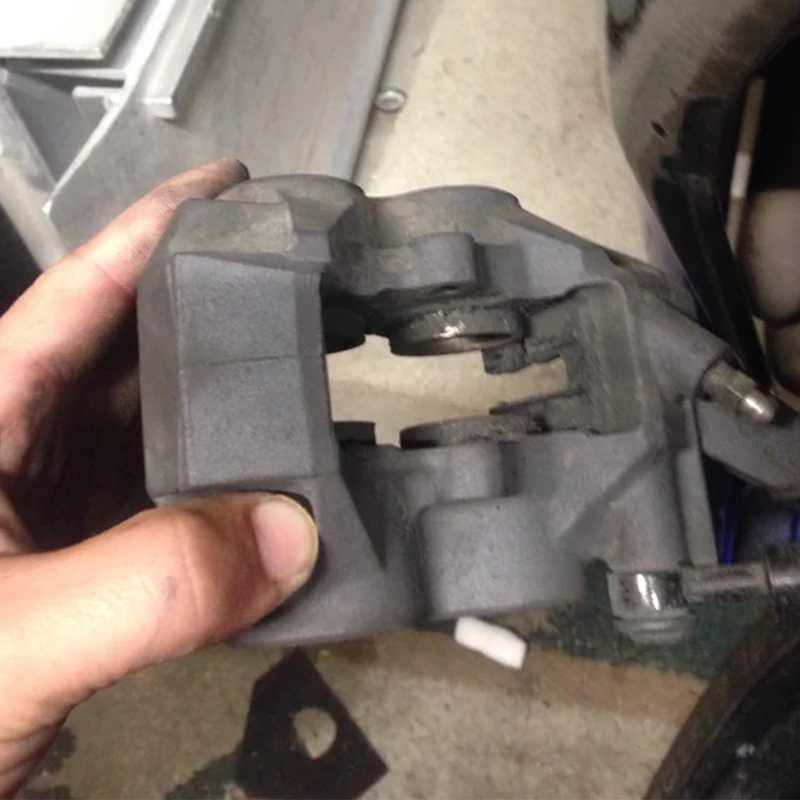
Now, your caliper mostly comprises pistons and pads. The piston problem is out of cleaning solution, but if your brake pads are contaminated with something slippery, brake fluid or oil, REPLACE them for YOUR safety. There is no way to completely clean contaminated pads and to get that contamination out once the pad absorbs it. It may be fine until you panic stop, and the brakes fade into oblivion.
So basically, if you don't want to remove then spraying brake cleaner is the only way, but if you would like to remove, then the drill is like following,
- Remove pads.
- Bake your pads in the oven at 200C for about 20 minutes. (only if there is an option, else proceed with next step)
- After cooling, place pads in a small container filled with isopropyl alcohol or brake cleaner for about 20 minutes.
- Remove pads from the isopropyl alcohol bath and let the spirit flash off. Sand with medium-fine Emery cloth in a circular motion to take the top 0.25 to 0.5mm off (place the fabric on a flat hard surface and hold the pad, not the other way around).
- Clean pads again with isopropyl alcohol.
- Reinstall the pads.
- Get out and do some braking. Bed the pads and brake hard until they start feeling pretty good.
Best Degreasing disc brake cleaner & caliper cleaner liquid spray
It's always best to use the correct chemicals. Brake cleaner is similar to carb cleaner in that it's a quick evaporating solvent. Being a biker make it a practice to never touch the brake rotors with bare fingers (like a halogen bulb) because you get oil from your skin on them. Seems like overkill, but you should also wear nitrile gloves when doing any brake work, and always spray brake cleaner on the pads and rotors after any brake jobs, it works very well to remove any brake fluid that may have spilt on the pads.
Caution: Brake cleaners are incredibly flammable aerosol. Pressurized container. May burst if heated. Causes severe eye irritation. May cause drowsiness or dizziness. Repeated exposure may cause skin dryness or crack. Keep out of reach of children.
Muc-Off Motorcycle Disc Brake Cleaner
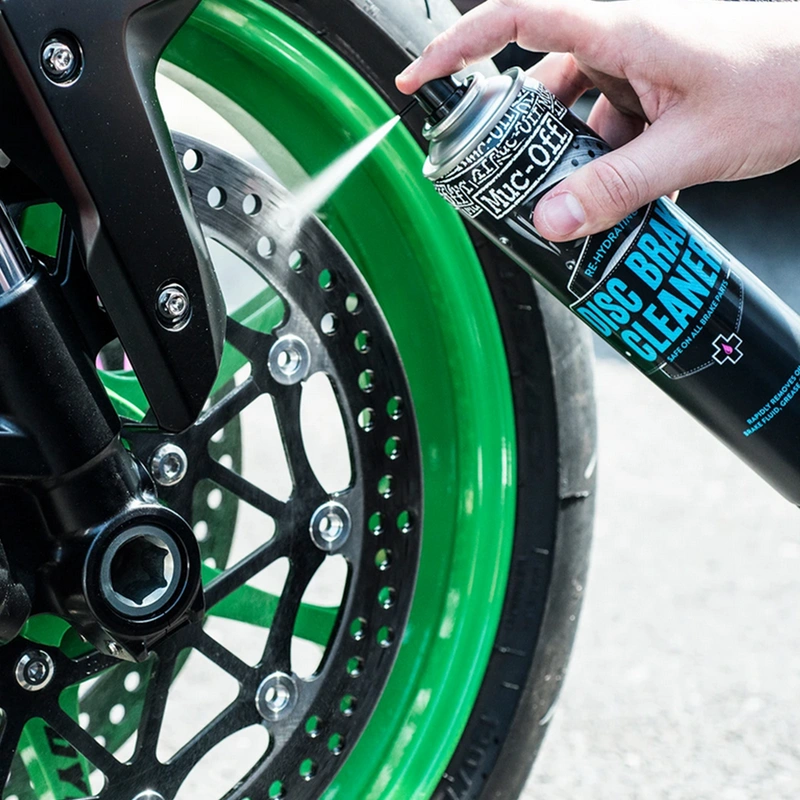
The unique formula breaks down unwanted particles, often leaving your braking performance compromised. It has added conditioners that rehydrate the Disc Brake pad to reduce brake squeal and dramatically prolong the disc brake life.
The Muc-Off Disc Brake Cleaner leaves motorcycle brake discs and other braking parts clean and contaminant-free with its rehydrating capabilities.
User Reviews
“One of the best bike cleaning products I have tried! Easy to use, cleans breaks with no effort; even the smell is great.”
WD-40 Specialist Motorbike Disc Brake Cleaner
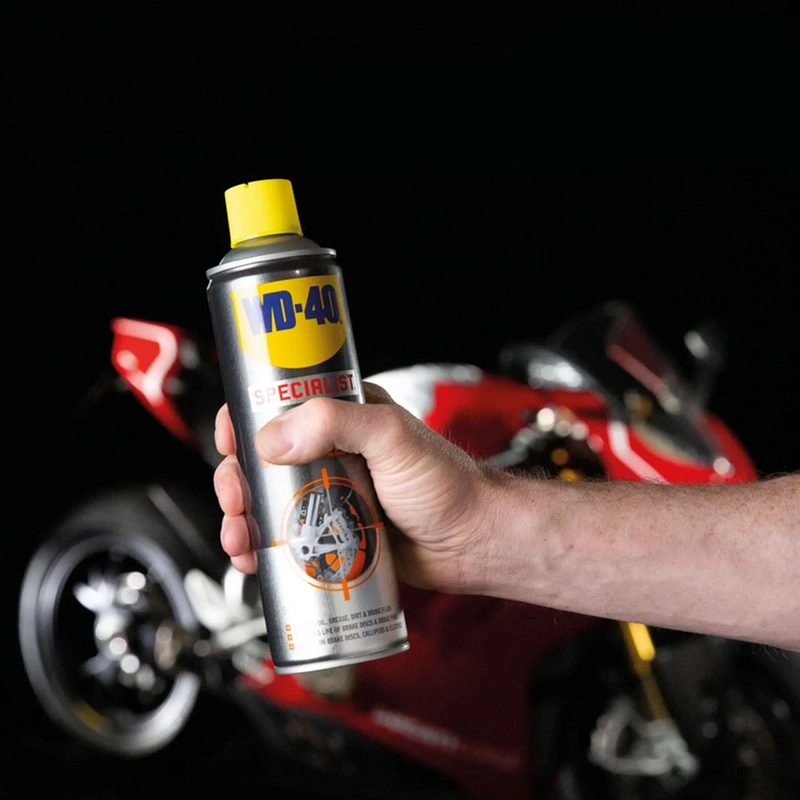
WD-40's Specialist Motorbike formulas have all been developed in conjunction with the University of Sheffield. They have been tested with Team WD-40, from the British Superbikes Series, to ensure that the range consistently meets the needs of intense use and high-performance race environments.
Explicitly designed to remove dust, oil, grease and road debris from motorbike brakes. It can clean discs, pads, assemblies, calipers and clutches.
User Reviews
“I bought this product because my disk brakes on my motorcycle needed a good scrub and water wasn't cutting it anymore! I used this product once, and it took the grime off of the disks, which helped with my brakes squealing. Worth it!”
“Good quality stuff. I have used this for neutralizing spilt brake fluid when changing out rotten brake hoses. Used it to clean brake discs before installing. Also used it to clean all the oil/grease off my differential and it did a pretty good job of that coupled with a brass wire brush.”
3M High Power Disc Brake Cleaner
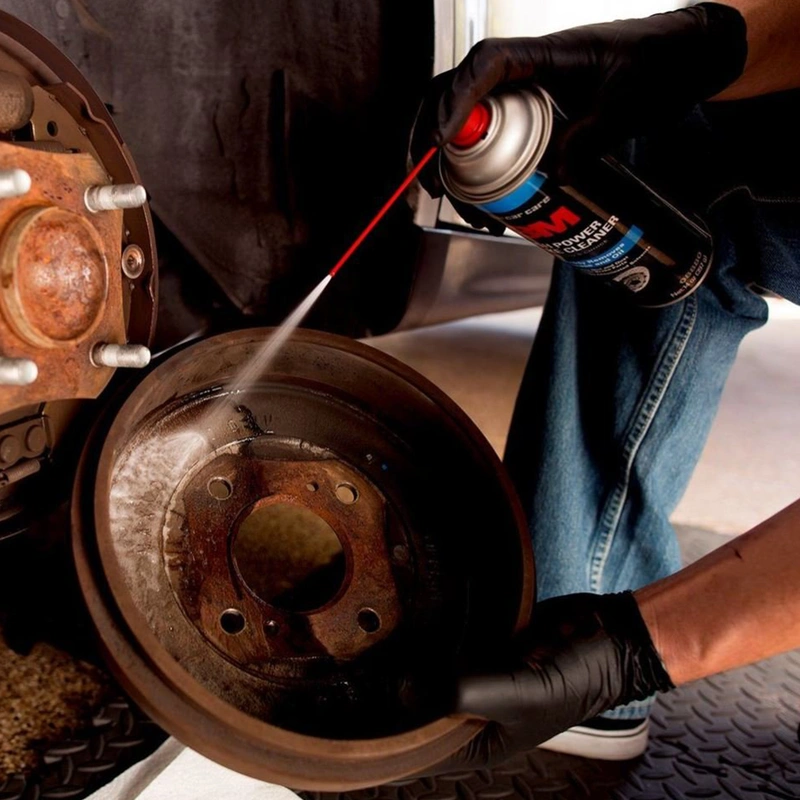
It is a high-pressure spray for aggressive cleaning. The extension tube mounted provides a gentle, flushing spray pattern and leaves no residue with fast drying. It also uses a non-chlorinated formula.
User Reviews
“I never do any job without a can of this on hand. The uses are limitless. It even makes a GREAT gun cleaner. I use this to get 90% of the gunk off a dirty gun. I use the expensive carbon solvents for the rest. This works great at the gun range when a quick clean is needed. It takes only SECONDS and you are done. This is nowhere as caustic on parts like carb cleaner can be. Yes, Brake Clean can melt specific plastic and damage some paints, but try acetone or carb cleaner and see the difference.
Avoid contact with the skin at all costs. It will get absorbed and cause neurological issues, but that is likely repeated heavy exposure. Wash your hands well with soap and water after use. Best to wear barrier gloves if you are concerned about even a small exposure. Always use a good hand cleaner like Go-Jo with pumice at the end of a greasy job. Wash and moisturize your hands whenever it has been in contact with brake clean. Gloves are always a good idea but not always possible. People with susceptible skin MUST use chemical resistant gloves when working with this product. My hands ARE pretty sensitive but will be OK as long as I wash and rinse a lot. Once you use this product, you won't believe how you survived without it for so long.”

